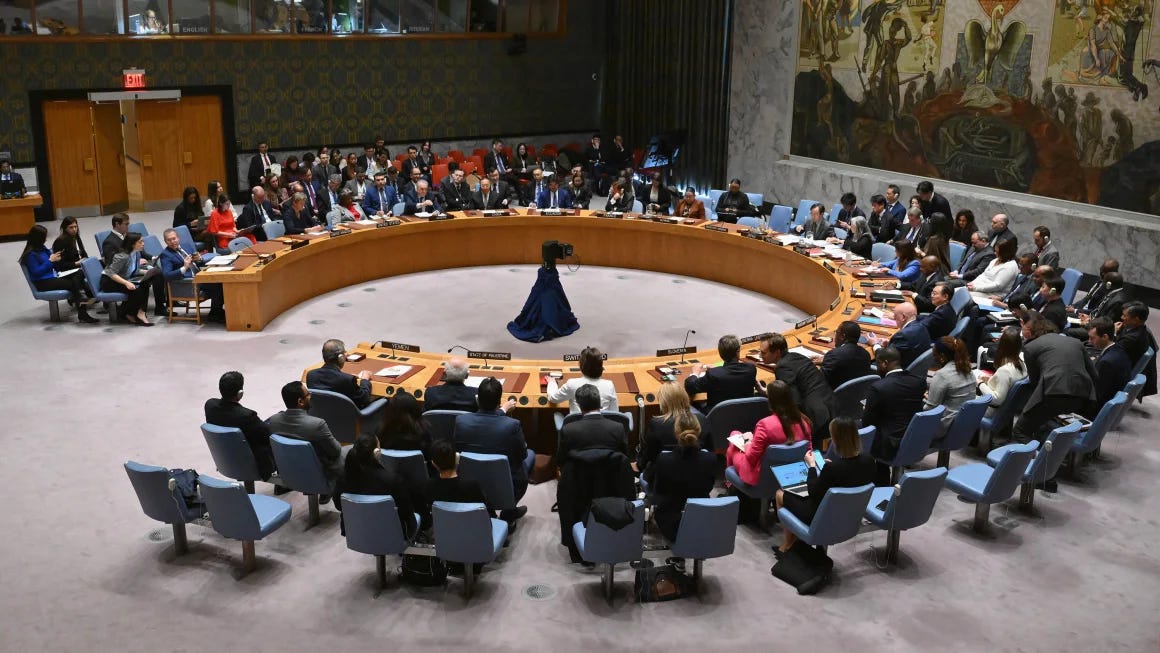UN Security Council Passes Resolution for Immediate Ceasefire in Gaza, with US Abstaining
This could be a point of inflexion not only in the Israel-Hamas conflict but also in the long-term strategic US-Israel relations.

Unprecedented Tensions and US Abstention
Today’s (March 25) UN Security Council meeting at the headquarters in New York has led to a critical resolution— adopted barely minutes ago— calling for an immediate ceasefire in Gaza, passed with the notable abstention of the United States. This development has significantly strained relations between the US and Israel, leading to the cancellation of a scheduled trip to the US by top Israeli advisers, further highlighting the diplomatic rift.
Netanyahu's Reaction and Cancellation of Visits
In response to the US's abstention, Israeli Prime Minister Benjamin Netanyahu canceled the visit of an Israeli delegation to the White House. This delegation was to discuss critical issues, including the ceasefire in Gaza. The abrupt cancellation underscores the growing tensions between the two nations, especially after the US shifted its stance in the Security Council.
Disappointment and Diplomatic Strain
The White House expressed its disappointment over Netanyahu's decision, emphasizing the missed opportunity for a comprehensive discussion on viable alternatives to military action in Gaza. The planned talks were crucial, especially in light of the looming military operations in the region.
UN's Call for Immediate Action
UN Secretary-General António Guterres emphasized the importance of implementing the ceasefire resolution, labeling any failure as "unforgivable." The resolution demands not only an immediate ceasefire but also the unconditional release of all hostages, reflecting the urgency of the humanitarian situation in Gaza.
The Resolution's Contents and Implications
The resolution, advocated by the non-permanent members of the Security Council, seeks an immediate cessation of hostilities during Ramadan, the release of hostages, and an increase in aid flow into Gaza. While the resolution is legally binding, its enforcement remains a challenge, highlighting the limitations of UN mechanisms.
Growing Tensions and Diplomatic Efforts
As tensions escalate over a potential Israeli incursion in Rafah, the international community is closely watching the developments. The cancellation of the Israeli delegation's visit to Washington and the ongoing discussions on a prisoner-hostage deal indicate the complex diplomatic efforts underway to resolve the crisis.
Strengthening the UNSC: India's Case for Permanent Membership
With a burgeoning population of 1.4 billion, India stands as a colossus on the global stage, its dynamism and diversity reflecting the multifaceted challenges and opportunities facing our world today. Under the towering leadership of Prime Minister Narendra Modi, India has not only navigated the complexities of rapid economic growth and socio-political integration but has also increasingly positioned itself as a pivotal player in international diplomacy and global peace initiatives. The case for India's permanent membership in the United Nations Security Council (UNSC) is compelling and timely.
Countries like Qatar playing a global peace-broker
In a world where the effectiveness of multilateral bodies like the UNSC has been questioned, and crucial diplomatic negotiations have been outsourced to smaller states such as Qatar, India's inclusion as a permanent member could rejuvenate the Council's mission and enhance its legitimacy. India's vast experience in balancing diverse domestic interests, its historical commitment to non-alignment and peacekeeping, and its growing economic and military capabilities equip it uniquely to contribute to the UNSC's goals. Furthermore, under Modi's leadership, India has demonstrated a keen understanding of the nuances of contemporary global politics, making it an invaluable ally in steering the council towards more effective and equitable conflict resolution and international cooperation. The time has come for the UNSC to embrace India's potential as a permanent member, acknowledging its role not just as a leader of the Global South but as a formidable force for global stability and peace.
Conclusion: A Cautious Optimism Amidst Domestic and International Pressures
The UN's resolution and the US's abstention reflect a cautiously optimistic approach towards achieving peace in Gaza. However, the US's stance is influenced by domestic imperatives, with support among young American voters, including first-time voters, significantly against the Biden Administration's policy. While the US continues to support Israel, its relief operations are perceived by many Americans as merely symbolic, highlighting the need for a more substantive and impactful approach to resolving the ongoing conflict.
Will there be enduring peace in Middle East? Too early to tell.


